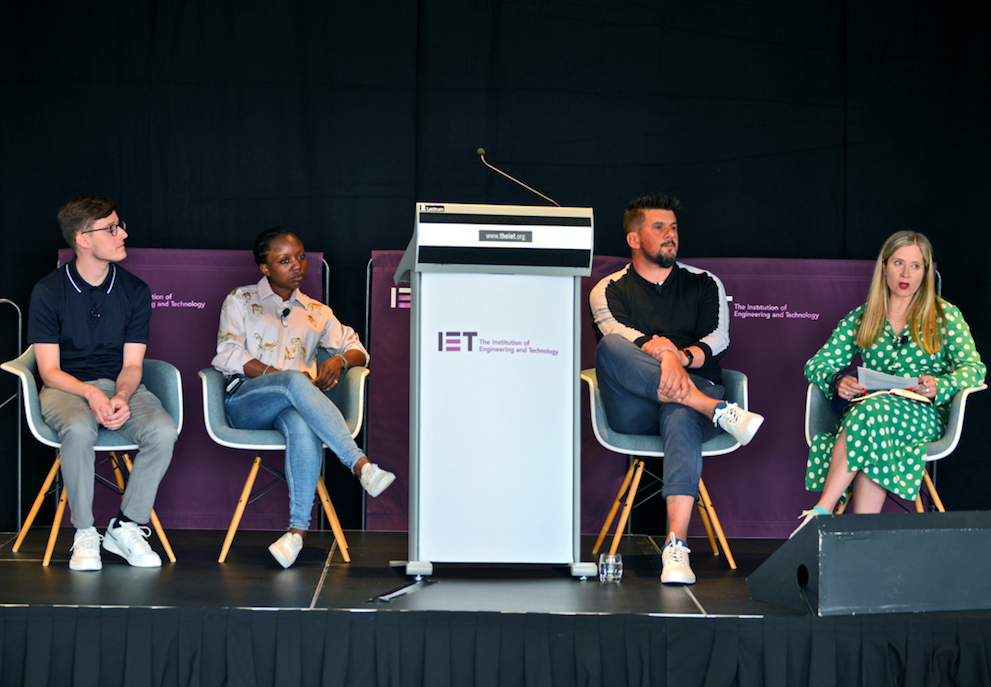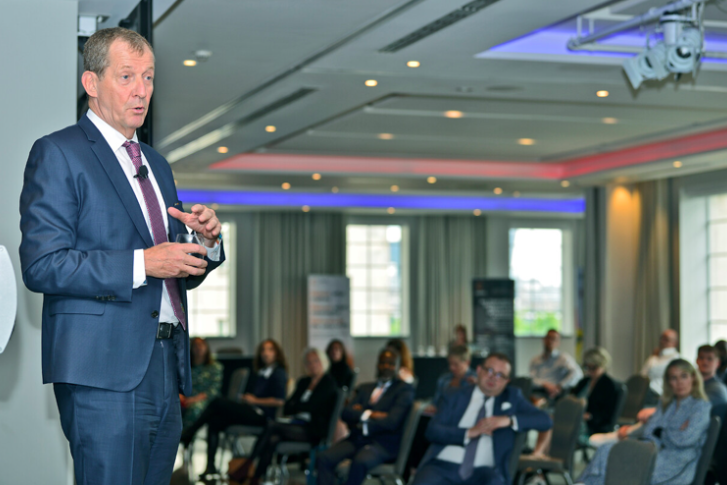
PRCA NATIONAL CONFERENCE: COMMUNICATIONS AND INFLUENCE IN THE POST-PANDEMIC ERA
The PRCA National Conference was held last Thursday 8 July with 200 physical attendees and 1,700 virtual viewers. Inspirational and insightful guests including keynote speaker Alastair Campbell, shared their thoughts on how PR and comms has evolved over the past year and what is in store for the industry post-pandemic.
Francis Ingham, director general of the PRCA started the day with a statement addressing attendees as frontline communicators. The past year has forced many people to recognise the power of PR, because as an organisation’s most valuable asset is its reputation. Ingham says, “We’re more agile, more innovative and more accessible than ever before. I can say with absolute confidence that our industries best days are ahead of us.”
The first guest speaker was Hayley Mulenda, change speaker, author and musician. Mulenda spoke to the audience about the mental health and how people can overcome personal struggles to drive success. Professionals can become focused on finding identity in their job rather than themselves, but Mulenda says a breakdown can become a breakthrough. Reflecting on 2020 burnout, Mulenda says, “We don’t talk about it enough. Burnout takes place when you start to prioritise your responsibilities over your hobbies,” but she emphasised that prevention is better cure. Mulenda gives the example of DJ D-Sol, who is also known as David Solomon, the CEO of Goldman Sachs. “Find your identity not in what you do but who you are, because your life offline needs to scream louder than your life online,” adds Mulenda.
Anna Salter, evaluation director at Kantar led a session discussing trust in the PR industry. Salter talked about the ways media consumption has changed and how comms teams can harness this information to build trust in brands and organisations. Trust is important as it can actually make people do something differently. Salter says PR is part of the picture when it comes to short-term effect, but long-term strategy is where it really makes an impact. “Purpose is the input, reputation and trust is the output,” says Salter and this is key for brands to operate, attract talent and grow as a business.
Jane Fordham, founder of Jane Fordham Consulting, led the first panel discussion of the day as the speakers discussed collective trauma, sustainable working practices and resilience building. Addy Frederick, group communications manager at financial services company, Prudential, highlighted the blurred boundaries of remote working, as doing more hours does not necessarily equal greater impact. “We need to think about what productivity actually means. We are in a transition so it’s not about what you’re doing but how you communicate this,” says Fordham. Adam Muller, account manager at CCGroup, brought a different perspective to the table as a young professional in the PR industry. Because of this collective trauma, Covid-19 has given us permission to talk about mental health says Muller. The speakers agreed that businesses need to stop looking forwards towards a return to the way it was, instead looking to reimagine a better and healthier future world of work.

At the heart of Covid-19 communications over the past 12 months, was Peter Heneghan, deputy director of digital communications at Number 10 and the Cabinet Office. Heneghan talked about the threat of disinformation, which he says thrives when people are confused. Comms teams need to adopt a more human approach and answer questions the audience want to know. Heneghan points to the power of comms through the success of the NHS Covid-19 app, which was originally slammed by the public. But, through human interest messaging and clear comms strategy, over 25 million people downloaded the app. “Government traditionally talks at people, but we’re trying to talk with them,” adds Heneghan.
Keynote speaker, Alastair Campbell is a writer, communicator, strategist and previous spokesman, press secretary and director of comms for former Prime Minister, Tony Blair. Campbell told his personal story of depression and how he came to survive and manage his mental health. Governments, businesses and employers all have a lot to do for mental health, says Campbell. Communicating is vital to the survival of everything from individuals and relationships to business and society. “We all get ill from physical health, it’s the same with mental health so we need to work on it because we all suffer. Whatever you are open about you will never regret because it is far more damaging to hold it in,” adds Campbell.

The second panel of the day explored how brands can build a purposeful CEOs to set the tone, direction and ethics of a company. Jo Ogunleye, B2B communications at Google, says it is not just about CEOs but about leadership teams around them, as people need to share their experiences and learn from this at board level. Tony’s Chocolonely is an example of a purpose driven business, as it works to prove delicious chocolate can be ethical and sustainable. Ben Greensmith, otherwise known as Lord Chocolonely III, says money is not the goal of a purposeful business, but rather a means to achieve the human goal.
Chris Turner, executive director at B Lab UK, the charity building the B Corporation movement in the UK, says it is very difficult to establish a B Corp purpose if the leadership teams are not a part of it. Purpose can be difficult to define but it is inspiring, especially in a post-pandemic environment, says Turner. Olivia Ross-Wilson, global communications director at IKEA, says, “It is an incredible time to make a change and redefine what it means to be a CEO.” The goal is to make a positive difference, but only if we have the best people, do we have a chance at changing the industries in which we operate.
Katie King, author, trainer and AI consultant, moderated the final discussion panel of the day looking at how comms can harness AI ethically and for competitive advantage. King points to the way AI has reduced the scale of vaccinations from 18-20 years down to one, as a clear example of its potential ethical impact. Richard Bagnall, co-managing partner of media intelligence provider, CARMA International, says AI can help comms teams to do the heavy lifting, but it cannot make decisions alone. AI tools can be used to generate data, but people are needed to interpret that data and make ethical human decisions. AI wont put PR people out of a job, but it will if we don’t harness the technology being utilised by competitors, adds King.
Vic Miller, VP of global comms at digital consumer intelligence company, Brand Watch, says brands can use AI to pick through the noise of misinformation and identify what strategy is going to resonate with the audience. “Power is now understanding what to ignore,” adds Michael Mpofu, head of comms at intelligent insurance platform, Worry and Peace. Rory Sutherland, vice chairman of Ogilvy UK, says businesses need to ensure AI is being used to inform decisions rather than make them. He suggests creativity may not come from artificial intelligence, but instead from artificial stupidity.
Other guest speakers sharing expert insight included Ian Wright, chief executive of the food and drink federation, who gave an engaging talk on the importance of authentic comms in the food and drink industry. Rachel O’Reilly, director of communications at luxury travel company, Kuoni conducted the last session of the day, discussing the challenges faced by the travel industry through Covid-19. The PRCA also hosted its first workshop, in which attendees were asked to share the different problems and actionable solutions around diversity and inclusion within the industry.
Find more information about the PRCA National Conference here.


